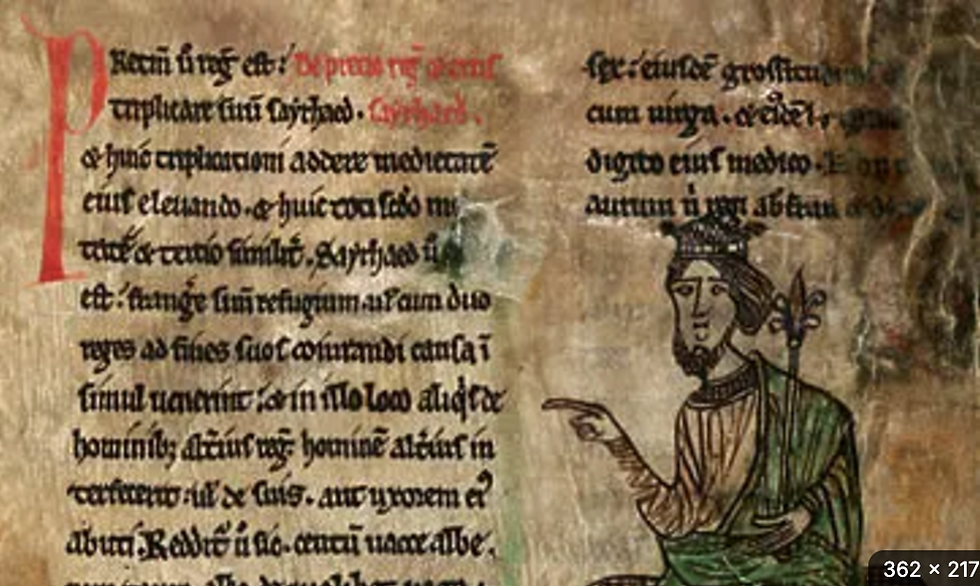Unraveling the Curious Cat Laws of Medieval King Hywel the Good
- Aisha Moon

- Sep 11, 2025
- 2 min read

The Cat Laws of the Welsh King Hywel the Good
Ruling the Welsh kingdom of Deheubarth and later conquering almost the whole of Wales between 942 CE and 950 CE, the Welsh King Hywel the Good gave his country a set of laws full of common sense and compassion. Punishment was not the foundation of those laws, unlike the norm at that time.
His laws were good and just, hence the moniker Hywel the Good. Hywel legally proclaimed that women have equal rights in one of the first instances of such an act by a king.
He constituted a team of lawyers and priests to codify the Laws of Wales. His subjects were mostly farmers. In the country's agrarian culture of those times, cats had a pivotal role, as rodents were plenty and threatened the grain storage.
Hywel the Good’s cat legislation included a detailed price chart for buying and selling kittens and cats. A kitten’s worth was a legal penny. According to Hywel's laws, a cat who had proven his/her prowess as a mouse catcher would cost you four legal pence. The legal price of a cat also varied based on its age.
The king declared that killing or stealing domestic felines was a crime, imposing hefty penalties on violators. King Hywel’s legal definition of a lawful hamlet also included cats. A hamlet, to be considered a legal entity, needed to have nine buildings, a plough, a kiln, a churn, a bull, a cock, one herdsman, and a cat.
The curious cat laws of Hywel the Good are thus unparalleled in history in their ethical stance and animal love.
Cats and King Hywel's Medieval Kingdom
Cats were officially employed in those days to protect the king’s barns from rodents. The law specified that if a cat were stolen or killed, the owner would need to be compensated with a quantity of wheat of equal volume to the length of the cat’s body, as measured from head to tail tip. Hywel set an alternative compensation if the perpetrator could not provide the wheat. The wrongdoer must then give the cat owner a sheep along with her lamb and the wool.
It was hilariously odd that Hywel’s legal code demanded that cats did not caterwaul during the full moon. The law enforcers might have had a tough time ensuring that.
While these laws may seem foolish to us today, they made perfect sense to the people living under Hywel’s rule. Cats were an integral part of farm life in those days. The farmers relied on them to keep their food secure, an outcome that amounted to the difference between poverty and wealth and hunger and a full stomach. Hywel the Good’s cat laws signify that strong connection.

$50
Product Title
Product Details goes here with the simple product description and more information can be seen by clicking the see more button. Product Details goes here with the simple product description and more information can be seen by clicking the see more button

$50
Product Title
Product Details goes here with the simple product description and more information can be seen by clicking the see more button. Product Details goes here with the simple product description and more information can be seen by clicking the see more button.

$50
Product Title
Product Details goes here with the simple product description and more information can be seen by clicking the see more button. Product Details goes here with the simple product description and more information can be seen by clicking the see more button.



Comments